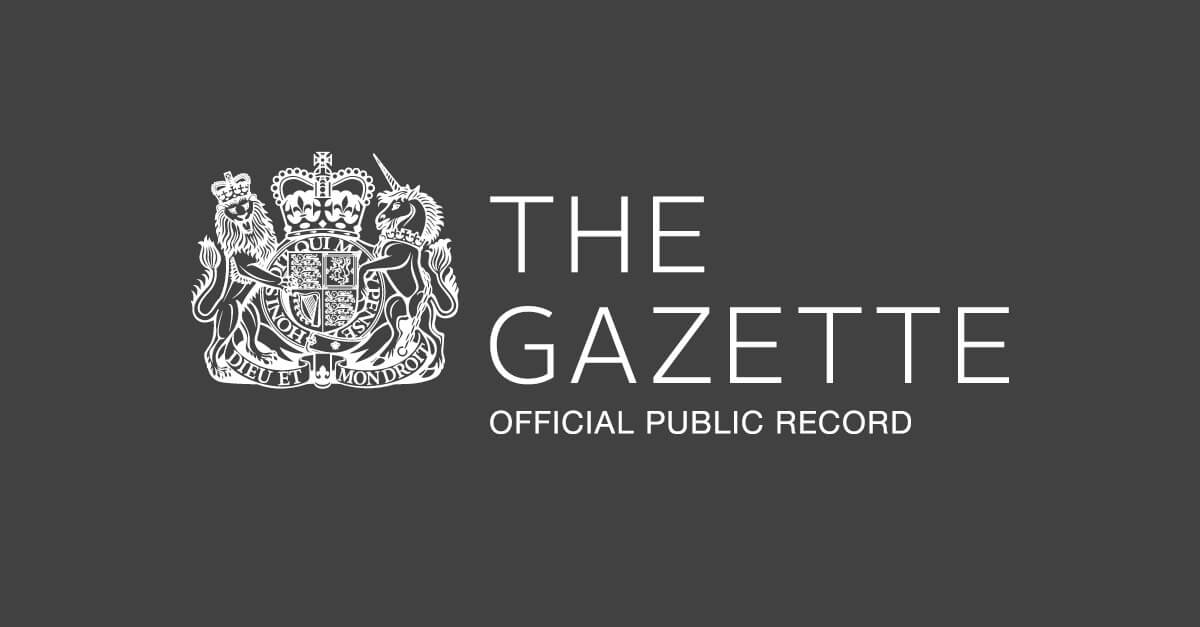Steps to Stay Clear Of a First Gazette Notice for Compulsory Strike-Off: What Every Entrepreneur Ought To Know
Steps to Stay Clear Of a First Gazette Notice for Compulsory Strike-Off: What Every Entrepreneur Ought To Know
Blog Article
A Thorough Evaluation of the Legal Responsibilities Bordering Gazette Notice Publication
The realm of gazette notification magazine is a maze of lawful complexities that demand precise attention. From the stringent legal requirements controling the material of notices to the implications of non-compliance, browsing this landscape is no minor job. Comprehending the essential legislation that determines these obligations is vital for entities obliged to disseminate notices with this authorities channel. The complexities prolong past mere legal obligations, touching upon best methods that can strengthen compliance initiatives. As we unravel the layers of legal commitments surrounding gazette notification publication, a comprehensive analysis is crucial to grasp the gravity of these obligations and the effects of failing to adhere to them.
Lawful Needs for Gazette Notifications

Legal requirements for Gazette notices dictate the certain criteria that need to be fulfilled for the magazine of main alerts in the Gazette. One trick requirement is the accurate and complete disclosure of details in the notice.
In addition, legal requirements frequently mandate the timely entry of notices to the Gazette. Timeliness is vital to make sure that the info reaches the designated recipients within a sensible timeframe, enabling them to take essential actions or make informed decisions promptly. Failing to stick to these timelines might lead to legal consequences or provide the notification inadequate.

Effects of Non-Compliance
Falling short to stick to the recommended needs for Gazette notification magazine can cause considerable consequences. Non-compliance with the policies stated for Gazette notice magazine can cause legal consequences, punitive damages, and reputational damages for the entity or private in charge of the publication. Failing to release notices in the Gazette within the specified timeframe or inaccurately sharing info can result in challenges in enforcing civil liberties, contractual obligations, or lawful procedures. In addition, non-compliance may undermine the openness and responsibility of the publication process, possibly wearing down public count on in the details provided in the Gazette. Furthermore, failing to fulfill the legal obligations bordering Gazette notice publication resource could lead to the invalidation of the notification itself, providing it lawfully ineffective. It is crucial for organizations and people mandated to publish notices in the Gazette to faithfully comply with the recommended demands to stay clear of these unfavorable effects and copyright the stability of the magazine process.
Trick Legislation Governing Magazine
Given the vital effects of non-compliance with Gazette notice publication needs, recognizing the key regulations controling this procedure is extremely important for making certain lawful adherence and maintaining transparency. In addition, specific industries may have their very own laws regarding notice publication, such as environmental firms calling for particular announcements to be made public for openness and liability objectives. Recognizing these legal structures is vital for organizations and individuals accountable for releasing Gazette notices to prevent legal repercussions and copyright the concepts of excellent administration.
Entities Obliged to Release Notices
Entities responsible for the publication of Gazette notices play a vital role in making sure transparency and legal compliance within the framework of governmental policies. Usually, these entities include government departments, regulatory bodies, and main gazette workplaces. Government divisions site link are usually charged with publishing notices relating to brand-new laws, guidelines, policies, and public news to inform citizens and various other stakeholders about modifications that might impact them. Regulative bodies, on the other hand, are in charge of publishing notifications associated with licensing, compliance requirements, enforcement activities, and other regulative issues within their respective markets. Official gazette offices offer as the key systems for the publication of lawful notifications at the nationwide, check my blog state, or neighborhood levels, ensuring that such information is obtainable to the public.
These entities are obligated to publish notifications promptly and accurately to abide with lawful needs and promote the principles of openness and responsibility in administration. Failure to publish necessary notices in a prompt manner might bring about lawful consequences, undermining the trustworthiness and effectiveness of the regulative framework. It is necessary for these entities to fulfill their obligations vigilantly to maintain public trust fund and make sure that stakeholders are educated of pertinent legal developments.
Best Practices for Compliance
To make certain adherence to legal responsibilities surrounding Gazette notification publication, it is vital for organizations to implement best practices for conformity that improve transparency and accountability in distributing important information to stakeholders. One of the fundamental finest methods is to develop clear interior processes and guidelines for Gazette notification publication. This includes assigning obligation to certain people or divisions, setting timelines for composing and assessing notifications, and guaranteeing conformity with magazine needs.

Conclusion
Finally, understanding the lawful commitments bordering gazette notice publication is essential for entities to abide with vital regulation. Failure to publish notifications in the gazette can have severe ramifications, including lawful effects. It is important for organizations to stick to ideal methods for conformity to ensure they satisfy their obligations under the regulation. Compliance with these requirements is essential to preserve transparency and promote the policy of legislation.
Report this page